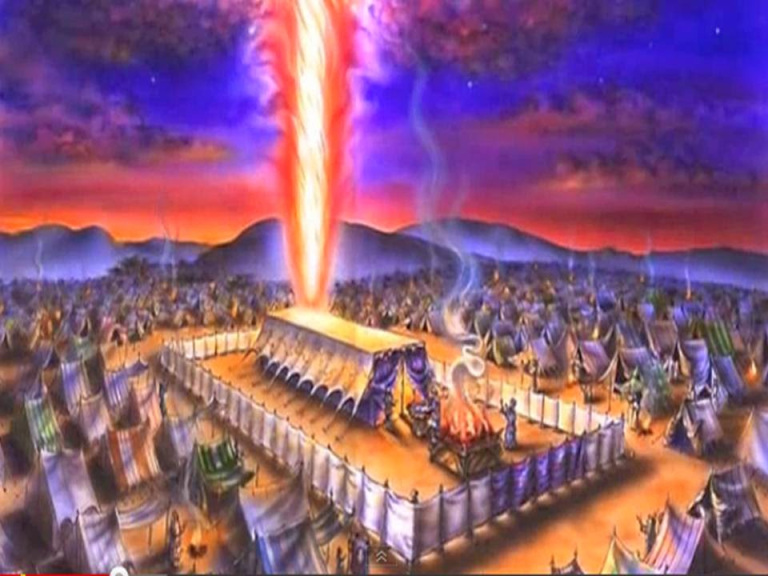Table of Contents
Gardening inspires faith – our gardening adventure
My family and I spent a lot of time gardening last week. While I tilled our vegetable garden plot in the back yard, my wife weeded her flower beds around the house. After two days of tilling was done, we planted the tomatoes and peppers that she started from seed a couple months ago.
The next day I dug trenches for my grandsons to plant the potatoes, dragged hoe-lines for my daughter to plant green beans, and helped Lynn set the onions and other companion plants for the tomatoes. Yesterday Lynn planted more green beans while I drove posts for the fence around the garden. She did more planting among the tomatoes and I added some melon hills. In the evening she put together some planters for the deck and I installed her pussy-willow bush, a Mother’s Day gift from our girls.
The next morning Lynn added some plants to her landscaping and I planted a short row of cauliflower in our small raised bed where the lettuce, carrots, and broccoli already were. Then I went out to the garden to spread some wood chips in the pathways. It was supposed to rain that afternoon and I wanted to have that done so the rain could pack it.
Remembering The Story Farm
Whenever I work in the garden, I remember my dad’s garden at the farm. It ran along the driveway from the tree line in front of the house out to the ditch that bordered Indiana Highway 10, probably close to 1/4 acre. The garden fed our family of nine with green beans, sweet corn, and tomatoes for the year. We also grew melons, carrots, radishes and various squashes for seasonal use. You can read more about my dad’s releationship with the soil in The Story Farm.
My own garden has much humbler goals. Last year we grew enough green beans for our household and my son’s family to eat through this spring. We had just enough tomatoes and peppers to make some salsa. We ate our own potatoes through the winter.
We hope to have a similar green bean crop this year, but we scaled back the potatoes and increased the tomato plants with the hope of having our own tomato juice and paste to go along with the salsa.
Gardening in the Bible
The Bible was written in an farming culture. The Israelites were known as shepherds in Egypt, and many of the commandments they received from God through Moses had to do with their stewardship of the land He was about to give them.
Many of Jesus’ parables were about farming because most of the people he spoke to understood farming processes. Mark 4 has three farming parables that describe the kingdom of God. Paul and James both used farmers and farming to illustrate teachings in their letters.
Two weeks ago I blogged about 3 ways a Christian’s hope is better than the world’s hope. Those same three points are why Gardening inspires faith.
Gardening inspires faith in what Jesus did
When I plant a seed in the soil, I know the type of plant that will sprout. That is because “God said, ‘Let the earth bring forth grass, the herb that yields seed, and the fruit tree that yields fruit according to its kind, whose seed is in itself, on the earth’; and it was so.” Genesis 1:11
God proclaimed that grass, herbs, and trees yield fruit and seed “according to its kind”. He made a promise that each kind of seed would sprout its own kind of plant. So whenever I plant a seed in my garden’s soil, it inspires me to believe in what Jesus did from the beginning.
Jesus used this concept to teach us how to identify other people by their works.
You will know them by their fruits. Do men gather grapes from thornbushes or figs from thistles? Even so, every good tree bears good fruit, but a bad tree bears bad fruit. A good tree cannot bear bad fruit, nor can a bad tree bear good fruit. Every tree that does not bear good fruit is cut down and thrown into the fire. Therefore by their fruits you will know them.
Matthew 7:16-20 (Also see Luke 6:43-45.)
James later used this principle in his rebuke to the church about how we use our tongues.
Can a fig tree, my brethren, bear olives, or a grapevine bear figs?
James 3:12
Planting and harvest are also part of the promises of God (Genesis 8:22, Psalm 107:37). So whenever I sow a physical seed in a garden, I believe what Jesus did.
Gardening inspires faith in what Jesus is doing
And He said, “The kingdom of God is as if a man should scatter seed on the ground, and should sleep by night and rise by day, and the seed should sprout and grow, he himself does not know how. For the earth yields crops by itself: first the blade, then the head, after that the full grain in the head. But when the grain ripens, immediately he puts in the sickle, because the harvest has come.”
Mark 4:26-29
As we planted seed in our garden this week, I remembered this passage from Mark 4 about the farmer sowing the seed, then going about his days, “and the seed should sprout and grow, he himself does not know how.”
Botanists and plant scientists can now tell us the stages a seed goes through to sprout or germinate (here’s just one article) But we still don’t know what features of the DNA inside a seed make it happen. We can observe the stages of germination and identify some factors that can be manipulated to affect germination, but we still don’t understand the ultimate source of the power in each seed.
Ultimately, it’s God’s design inside each seed that makes it sprout. That requires us to plant seeds in faith, because we don’t know what happens when we put the seed in the ground.
Solomon put it this way:
In the morning sow your seed, And in the evening do not withhold your hand; For you do not know which will prosper, Either this or that, Or whether both alike will be good.
Ecclesiastes 11:6
Jesus continues to uphold all things (Colossians 1:17, Hebrews 1:3) and God continues to work (John 5:17) and give us sunshine and rain (Matthew 5:45).
As the plants grow in the garden, I must trust that God’s design continues to work as he designed it and that His promises are true. Each plant will grow from blade to head to full grain.
Even weeding inspires faith
Back on the farm, after the crops were in the field and the garden was fully planted, Dad would take me outside after breakfast each day to weed part of the garden. It was never one of my favorite things to do. The summer heat and the tediousness of weeding made it an unpleasant task, but the fact that we would be back to weed the same areas next week irritated me more.
I never heard my father complain about weeding the garden. I don’t know why, but he seemed to enjoy it. I enjoy planting seed and plants, and I certainly enjoy harvesting (except green beans) but I still do not enjoy weeding.
Whenever I spend time pulling weeds one by one, I remember that God is also weeding me. He will cut away anything that is not going to bear the fruit He desires. My fruit will glorify Him.
“I am the true vine, and My Father is the vinedresser. Every branch in Me that does not bear fruit He takes away; and every branch that bears fruit He prunes, that it may bear more fruit… If anyone does not abide in Me, he is cast out as a branch and is withered; and they gather them and throw them into the fire, and they are burned… By this My Father is glorified, that you bear much fruit; so you will be My disciples.
John 15:1-2,6,8
Gardening inspires faith in what Jesus is going to do
We know that our garden plants will shrivel (Isaiah 40:7-8). It’s part of the seedtime/harvest process. But before it shrivels, our hope is to harvest the fruit. That’s why we plant in faith, because we know there will be a harvest!
Jesus used sowing and harvest to describe the work of evangelism. He will work in the lives of those to whom we witness; sometimes we will sow the word of God, sometimes we will gather the harvest of souls.
Do you not say, ‘There are still four months and then comes the harvest’? Behold, I say to you, lift up your eyes and look at the fields, for they are already white for harvest! And he who reaps receives wages, and gathers fruit for eternal life, that both he who sows and he who reaps may rejoice together. For in this the saying is true: ‘One sows and another reaps.’ I sent you to reap that for which you have not labored; others have labored, and you have entered into their labors.”
John 4:35-38
We garden because He will bring the fruit. Gardening inspires us to believe in the Lord of the harvest (Luke 10:2).
Our gardens also remind us of Christ’s resurrection and His return. Paul uses a seed’s death and growth to explain how our bodies will be resurrected.
But someone will say, “How are the dead raised up? And with what body do they come?” Foolish one, what you sow is not made alive unless it dies. And what you sow, you do not sow that body that shall be, but mere grain—perhaps wheat or some other grain. But God gives it a body as He pleases, and to each seed its own body… So also is the resurrection of the dead. The body is sown in corruption, it is raised in incorruption. It is sown in dishonor, it is raised in glory. It is sown in weakness, it is raised in power. It is sown a natural body, it is raised a spiritual body. There is a natural body, and there is a spiritual body.
1 Cor 15:35-38,42-44
James also used farming to encourage us to endure until Jesus returns.
Therefore be patient, brethren, until the coming of the Lord. See how the farmer waits for the precious fruit of the earth, waiting patiently for it until it receives the early and latter rain.
James 5:7
God is a Gardener
God started this whole gardening thing in Eden (Genesis 2:8). He continues to tend us as His garden so we can bear spiritual fruit (Galatians 5:22-23). He will establish another orchard in the New Jerusalem (Revelation 22:2).
So keep gardening, and keep believing. Gardening inspires faith.
By His calling, in His strength,
Dean
My new book, The Story Farm, is available on Amazon, Barnes & Noble, and for order from your local bookstore. Click here for more information.
Our first book, Families from the Beginning: Your Family, God’s Design, is available in paperback or Kindle on Amazon.
Follow this link to see a preview: Families from the Beginning sample.





